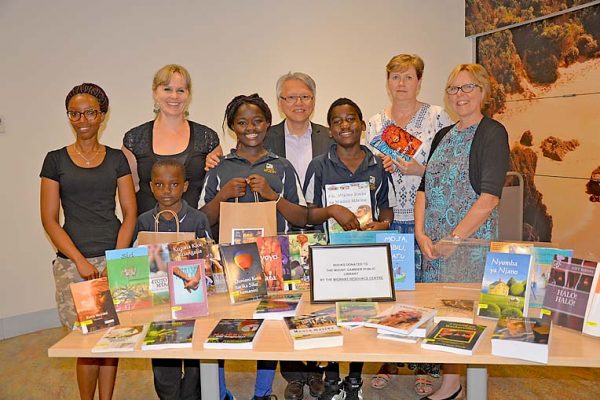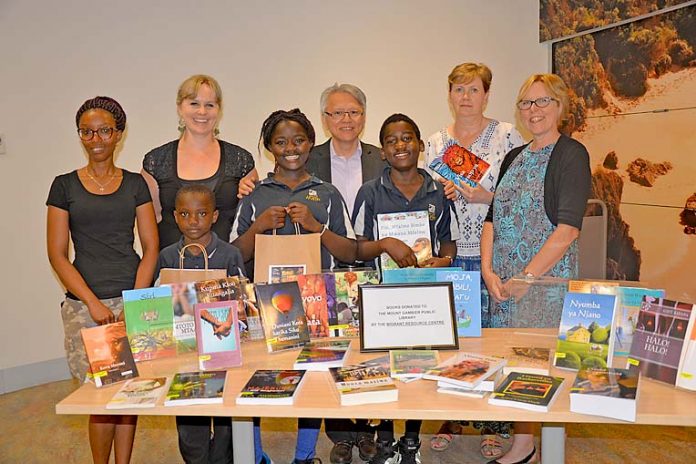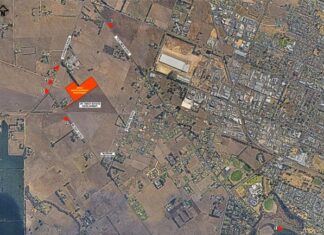
THE cultural diversity of the Blue Lake city was celebrated last week when new Swahili and Karen books were added to the collection at the Mount Gambier Library.
Raising money through a cultural night recently, the Mount Gambier Migrant Resource Centre and Congolese community have together purchased a total of 34 adult and children’s Swahili books for the new arrivals in the city to enjoy.
Inspired by the event, the Mount Gambier Friends of the Library group also added to the donation, with funds used to purchase further Karen books for the library.
Mount Gambier North Primary School students last week had a first look at the books, which are free to borrow from the library.
“One of the reasons I decided to do the book donation is because when there are books here, the migrant community will come in and connect with a local service that is of utmost importance in their development,” Mount Gambier Migrant Resource Centre manager Anelia Blackie said.
“It brings migrants into the library and gives them a sense of acceptance and belonging when they see their own books on the shelves.”
Also wanting to ensure the young migrants continue to use their own languages of Swahili and Karen, Ms Blackie said it was easy for them to lose those skills.
“We see now, with the people from Burma who have been here for 10 years, that a lot of their children can’t read and write in Karen,” she said.
“They become mono-lingual, which is sad because their parents can speak up to seven different languages.”
North Primary School teacher Camille Loveridge said while it was important for the new arrivals to learn English, they also encourage students to speak in Swahili and Karen.
“It helps us to learn their language as well, they are teaching the teachers, which helps us connect with their family,” she said.
Friends of the Library member Chris Lloyd said the group was thankful the donation would make a difference in the lives of the migrant community.
“We wanted to help encourage families to come into the library, borrow books and make use of the facilities,” she said.
“It is important for them to keep up their skills in their own language.”








